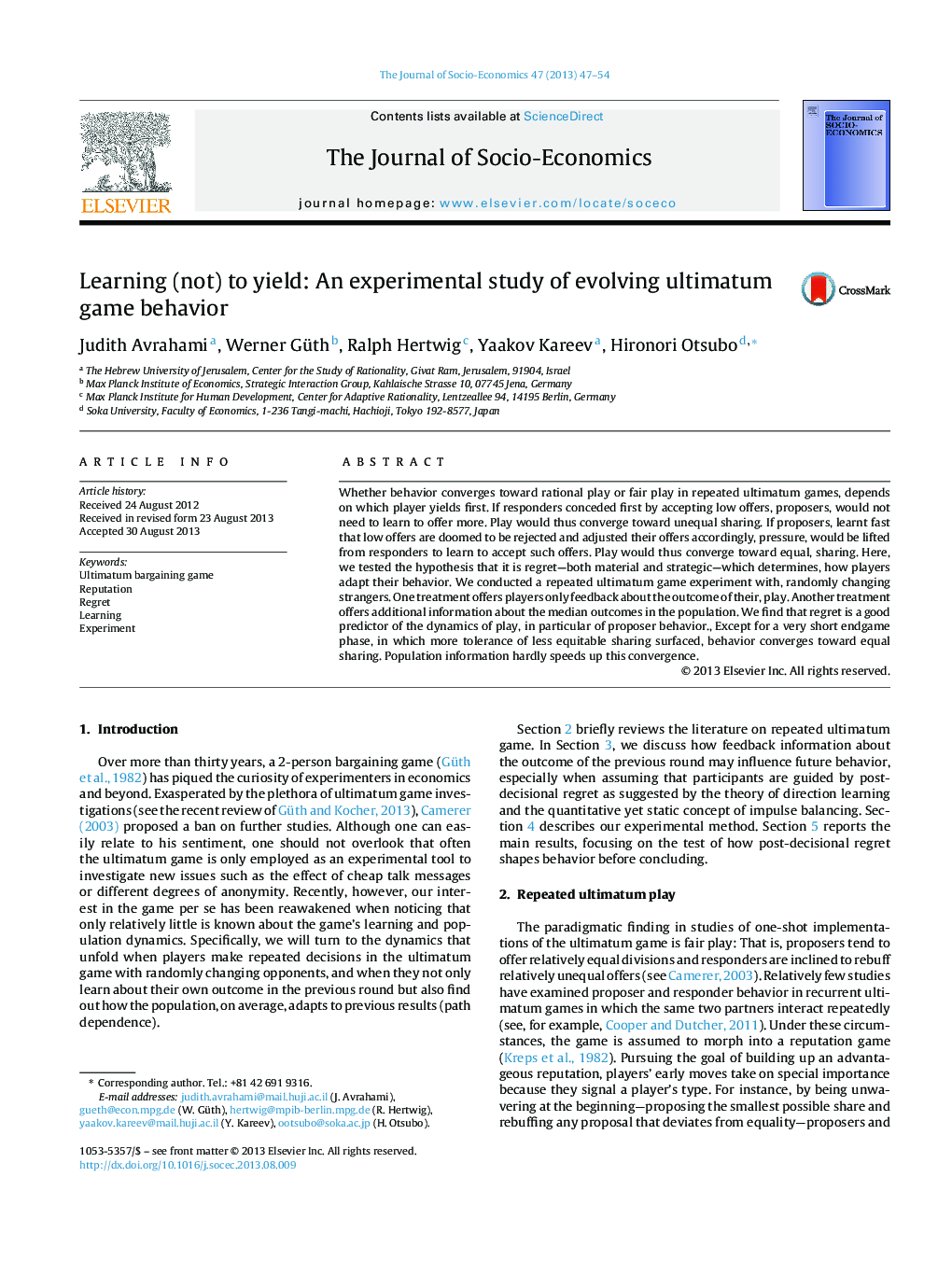| Article ID | Journal | Published Year | Pages | File Type |
|---|---|---|---|---|
| 7370494 | The Journal of Socio-Economics | 2013 | 8 Pages |
Abstract
Whether behavior converges toward rational play or fair play in repeated ultimatum games, depends on which player yields first. If responders conceded first by accepting low offers, proposers, would not need to learn to offer more. Play would thus converge toward unequal sharing. If proposers, learnt fast that low offers are doomed to be rejected and adjusted their offers accordingly, pressure, would be lifted from responders to learn to accept such offers. Play would thus converge toward equal, sharing. Here, we tested the hypothesis that it is regret-both material and strategic-which determines, how players adapt their behavior. We conducted a repeated ultimatum game experiment with, randomly changing strangers. One treatment offers players only feedback about the outcome of their, play. Another treatment offers additional information about the median outcomes in the population. We find that regret is a good predictor of the dynamics of play, in particular of proposer behavior., Except for a very short endgame phase, in which more tolerance of less equitable sharing surfaced, behavior converges toward equal sharing. Population information hardly speeds up this convergence.
Keywords
Related Topics
Social Sciences and Humanities
Economics, Econometrics and Finance
Economics and Econometrics
Authors
Judith Avrahami, Werner Güth, Ralph Hertwig, Yaakov Kareev, Hironori Otsubo,
